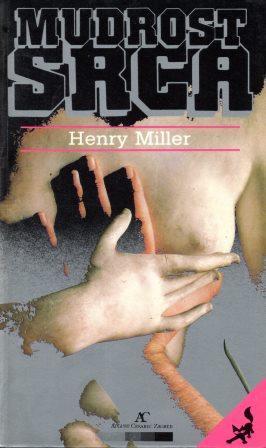What do you think?
Rate this book


Unknown Binding
First published January 1, 1941
I was surprised to see so many people reading this 1960 collection of essays by Henry Miller (1891-1980) well into the 21st century. I bought it in 1975. The receipt is still nestled between pages 138 and 139. I had recently read Sexus: Book One and Book Two Complete in One Volume, Plexus and Nexus, but these essays read like half-baked existentialism. Since I was a grad student reading more thoroughly baked existentialism in 1975, the book sat on the shelf until this year. I suppose anyone who finds this book in 2022 has their own reasons for reading it, but if not, here goes.
Miller campaigns for a "be-here-now" philosophy of life in these essays, leavened with occasional bits of psychoanalysis. The essays were all apparently previously published. They appear in my edition without the benefit of any introduction or apparatus that would tell the reader where they came from or when they were written. I get the impression that he would have collected a publishing fee for many of the chapters, while the novels he wrote were being suppressed in the U.S. and the U.K. Today, you can only write this kind of stuff for free on social media platforms. No one (well, hardly anyone) will pay you for it.
I was thinking to myself, "Miller would be embarrassed by this stuff if he could see it today," but the essay, "Reflections on Writing" explains that by the time The Wisdom of the Heart came out, living out his philosophy would have provided enough distance from any former self that he simply didn't care. He was consistent, at least. Most of the other essays deal with people who are almost forgotten today. Nobody reads Hermann von Keyserling today, but Miller thinks he's the only philosopher who actually philosophizes. The same goes for Eric Gutkind or E. Graham Howe, the psychoanalyst who is the subject of the title essay. Miller seems to have had a penchant for picking losers.
Like Friedrich Nietzsche (who Miller mentions) or Martin Heidegger (who he doesn't), Miller deploys a little parlor trick, separating himself and his readers from the great unwashed who can't/won't ascend to the heights of living in the moment. It comes up in almost every essay, and becomes stale as a result. This is not to say anything against the message. I just prefer the more poetic and less elitist versions we got from the Beatles: "I say "yes"; you say "no". You say stop; I say go, go, go."
Things get much better when Miller turns to storytelling, and the closing essays on Balzac reach a higher level of sophistication. There is one short essay I truly loved: "Benno, the Wild Man from Borneo." If having your own Wikipedia page is the contemporary mark of renown, Benjamin "Benno" Greenstein appears to be another forgotten figure, but you can Google some of his art, which looks pretty cool to my eyes. Miller's essay wouldn't tell you much about him, but it's the kind of writing that propelled me through more than a thousand pages of The Rosy Crucifixion. It reads like Hunter S. Thompson. Actually, Thompson reads like a toned-down version of Miller from this essay.
That "be-here-now" thing: it's better performed than described.